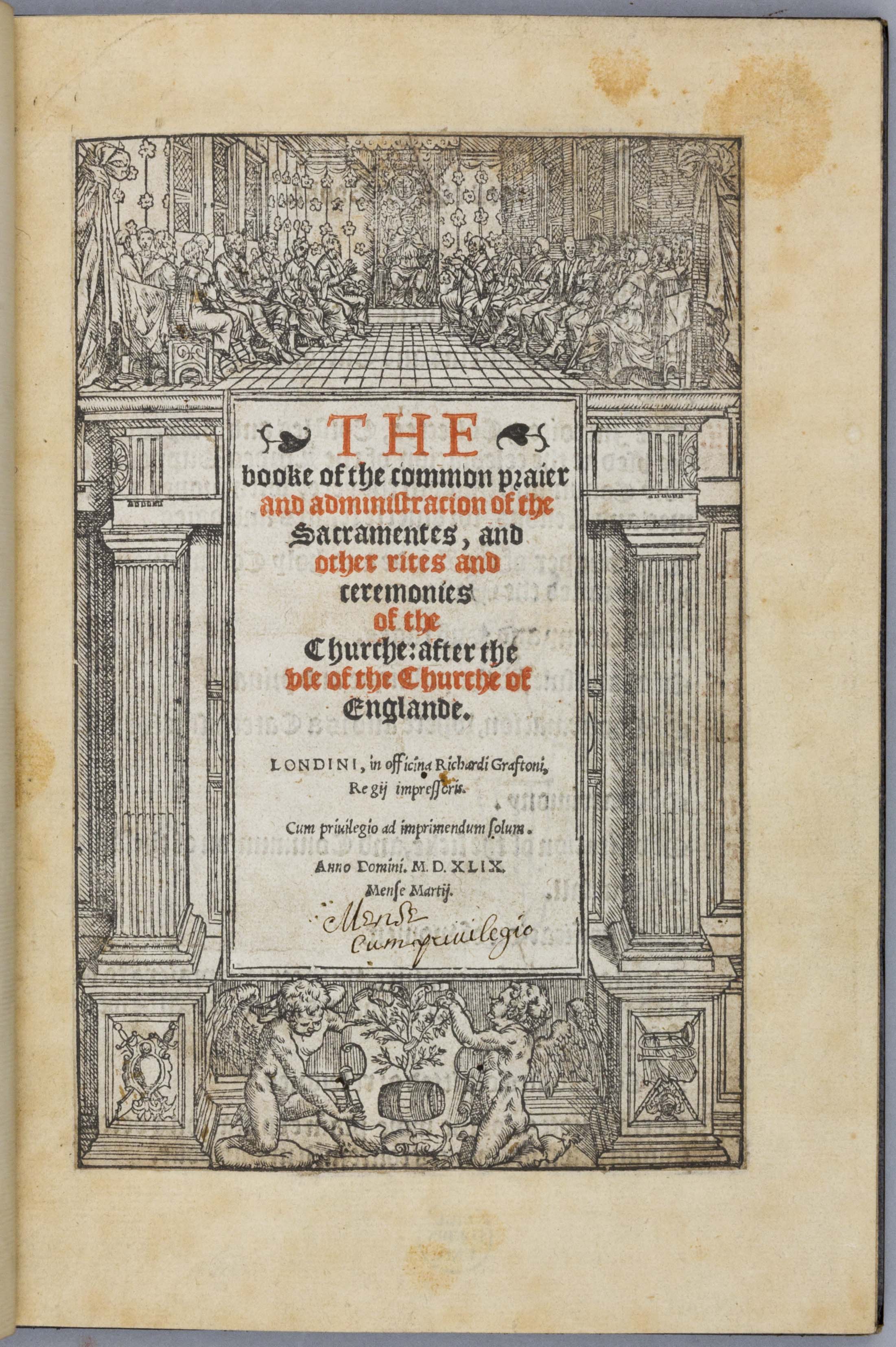
London: R. Grafton, 1549
First edition
[S.L.] I [Book of Common Prayer – 1549] fol.
The Book of Common Prayer (‘BCP’) is a key production of the English Reformation. It was largely the work of Thomas Cranmer, Archbishop of Canterbury under Henry VIII and Edward VII. The work was initially as political as it was theological: as its use was mandatory, it signified state control over religion. The uniformity of English-language worship thus imposed across England, as opposed to the various preceding Latin rites, was intended to forge a common cultural identity to stifle rival allegiances, especially to the Roman Church. The Book of Common Prayer helped to spread the Scriptures in English, with the lectionary covering most of the Bible in the course of a year, and it removed saints and the dead from the liturgies. It was not uniformly welcomed: Puritans found it too traditional and Catholics, shocked by the appearance of the Mass in English, rioted. But it imbued English culture. One of the most frequently reprinted books in the world, it has undergone some 1,200 translations into more than 200 languages and dialects, accompanying the British Empire across the world. Its rites, especially its marriage service, have marked the lives of countless people; its language and cadences have saturated our consciousness.